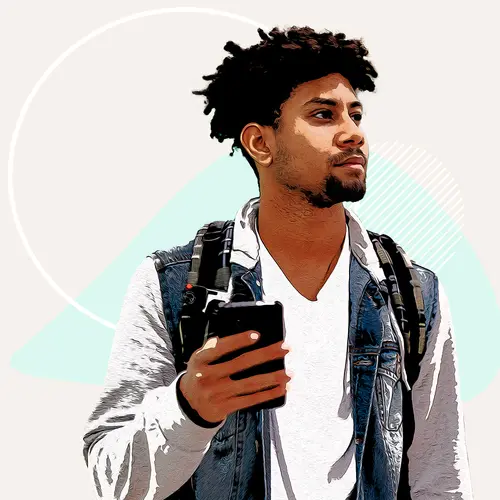Symptoms of schizophrenia like hallucinations and paranoia can usually be improved with drugs and therapy. But things like anxiety, trouble with focus, and lack of motivation may not be as easy to treat.
“People with schizophrenia often find it hard to remember to do things like take their medication, or struggle to eat right or get regular physical activity,” says John Torous, MD, a Harvard psychiatrist and director of the Digital Psychiatry Division at Beth Israel Deaconess Medical Center in Boston. As a result, their symptoms may get worse, and they end up in a vicious cycle that’s hard to break.
One way people with schizophrenia can get support is through mobile wellness apps, says Colin Depp, PhD, a psychologist at the University of California, San Diego who specializes in digital interventions for patients with schizophrenia. Apps may help you stick to a medication schedule; keep tabs on your mood, sleep, and day-to-day functioning; and even manage symptoms such as hallucinations.
How Wellness Apps Can Help
The most effective method is for people with schizophrenia to use wellness or mental health apps between doctor visits to enhance their care, Torous says. “They can be a valuable way for both a patient and their provider to figure out what may trigger symptoms,” he explains.
He recalls one person with schizophrenia whose depression and psychosis were getting worse. “When we had him use different apps to collect data, it became clear to us that when he did not get a good night of sleep, his symptoms worsened,” he says. “We helped him monitor his sleep, and as it improved, his symptoms got better. He had to see data week by week to realize the connection.”
These apps are also valuable as a form of digital therapy, since they can help people with schizophrenia work on social skills and assist them in getting rid of negative thoughts. If someone hears voices (called auditory hallucinations), a meditation app may help block them, Torous says. “There’s a belief among many medical professionals that people with schizophrenia have trouble with technology, but if you work with a patient to teach them some basic digital literacy skills, it goes a very long way.”
Research shows that these apps work. A 2020 review concluded that two prescription apps geared to people with schizophrenia -- FOCUS and PRIME -- can ease symptoms of depression and boost independence in people with schizophrenia. (Both apps work by giving users daily challenges, providing therapy exercises, and offering a way to connect with other patients in a virtual community.) Another study published in 2020, in which Torous had a role, found that people with schizophrenia who combined a weekly in-person group therapy session with a smartphone therapy app called CBT2go reported significant improvement in their symptoms.
Although none of these apps is yet available to the general public, any sort of wellness app may be useful for people with schizophrenia, Torous says. “It allows them to use different cognitive skills and thus can improve their attention, memory, and focus, as well as encourage them to adopt healthier lifestyle habits,” he explains.
The challenge is if you use multiple apps, he says, it can be hard to get a big-picture sense of your overall health information. “One app may track your medicine, and another your mood, and a third your exercise habits,” he explains. “It's very hard to put it all together and understand how you’re doing.”
How to Pick Apps That Are Right for You
Screen apps carefully. There are over 10,000 mental health apps available, Torous says, so it can be challenging to pick the right one. “The app stores themselves don’t regulate the apps to make sure they are safe and work, so it’s really the Wild West out there. If you just search for schizophrenia in the iTunes store, for example, games pop up which actually stigmatize the condition.”
Beth Israel Deaconess Medical Center has partnered with the American Psychiatric Association to set up a database of carefully screened mental health and wellness apps that you can sort through to find one that best meets your needs. For example, you can search for apps that keep tabs on your sleep, offer mindfulness exercises, or help you keep track of your medications.
Enlist outside help. Some people with schizophrenia find it hard to rate their emotions, keep track of things like how they feel on a given day, or log their diet or medication history, says Frank Chen, MD, chief medical director at Houston Behavioral Healthcare Hospital. It may make sense to set up a check-in on an app with your doctor or therapist.
“In my experience, when patients with schizophrenia are just given an app to navigate on their own, they don’t have the same improvements as when they use it with a therapist or even with a caretaker,” says Tiffany Herlands, PhD, an assistant professor of medical psychology in the Department of Psychiatry at Columbia University Irving Medical Center.
A medical or mental health provider may also be able to personalize the app to better meet your needs, notes Depp. For example, if you struggle with constant feelings of paranoia, they can help create a script that pops up on your phone or app so you can work through your emotions.
Review the fine print. Since mobile apps can collect your personal data, it’s important to review the privacy policy to make sure they can’t share it with third parties unless you give consent, Torous says. The app should also make clear what kind of information it’s collecting.

